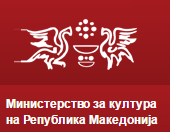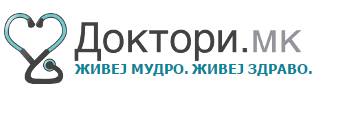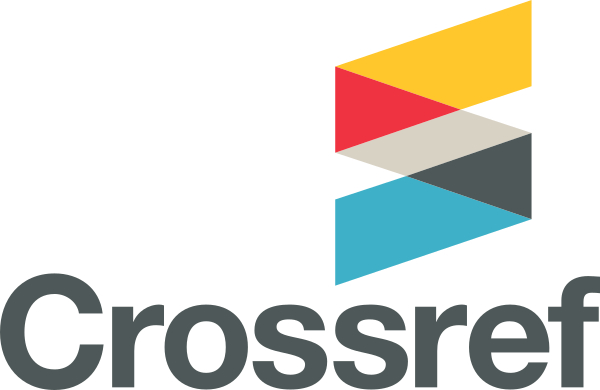JSER Policies
JSER Online
JSER Data
Frequency: quarterly
ISSN: 1409-6099 (Print)
ISSN: 1857-663X (Online)
Authors Info
- Read: 100240
|
ПРЕТПОСТАВКИТЕ ЗА ИНКЛУЗИВНОТО ОБРАЗОВАНИЕ И УЛОГАТА НА НАСТАВНИЦИТЕ И СТРУЧНИТЕ СЛУЖБИ Огнен СПАСОВСКИ
Институт за психологија, |
|
PRINCIPLES OF THE INCLUSIVE EDUCATION AND THE ROLE OF TEACHERS AND IN-SCHOOL PROFESSIONAL STAFF
Ognen SPASOVSKI
Institute of Psychology, |
||
|
Примено: 15. 01. 2010 |
|
Received: 15. 01. 2010 |
||
|
|
|
|
||
|
Вовед |
|
Introduction |
||
|
|
|
|
||
|
Декларацијата од Саламанка (Salamanca Statement on Principles, Policy and Practice in Special Needs Education/Salamanca Declaration) од 1994 (1) е основата на разбирањето и практикувањето на инклузивното образование. Базирана на Универзалната декларација за човековите права и на Светската декларација за образование за сите, овој документ ја дисеминира филозофијата на инклузивноста и принципите на хуманизмот. Инклузивното образование е разбрано како развоен приод кој бара да се земат предвид потребите за учење на сите деца, млади и возрасни, нагласувајќи ги оние што се подложни на маргинализација и исклучување. Тоа значи вклучување на сите деца во сите школски активности во училницата и надвор од неа, воедно овозможувајќи им еднакви можности на сите да го достигнат својот максимум во потенцијалите и постигањата, без оглед на нивното потекло или способности, физички, социјални, емоционални, јазични или други разлики. |
|
The Salamanca Statement on Principles, Policy and Practice in Special Needs Education (Salamanca Declaration) from 1994 (1) is the cornerstone of understanding the practice of inclusive education. Based on the Universal Declaration of Human Rights and the World Declaration on Education for All, this document also disseminates the philosophy of inclusiveness, mutually with the philosophy of humanism. Inclusive education is understood as a developmental approach aiming to meet the educational needs of all children, youth, and adults, and emphasizing those who are subjected to marginalization and exclusion. Widely understood, it means the inclusion of all children in all classroom and out-of-classroom school activities, and means that all children should have equal opportunities to reach their maximum potential and achievement, regardless of their origin and abilities or disabilities, and regardless of their physical, intellectual, social, emotional, or linguistic differencies. The Declaration holds that every child has unique characteristics, interests, abilities, and learning needs, and educational systems should be designed in a way that takes into account the wide diversity of these characteristics and needs. The Declaration also states that those with special educational needs should have access to regular schools, which should accommodate them within a child-centered pedagogy capable of meeting these needs, “Schools have to find ways of successfully educating all children, including those who have serious disadvantages and disabilities” (1). Such schools with inclusive orientation will effectively fight discriminatory attitudes and will contribute to the development of welcoming, positive communities and inclusive societies. |
||
|
|
|
|
||
|
Проблем на истражувањето |
|
Research problem |
||
|
Тргнувајќи од универзално прифатените претпоставки и разбирање на инклузивното образование и компетенциите поврзани со неговото практикување, согледувањето на актуелната ситуација на теренот води до прашања кои бараат да бидат истражени. Проблемот кој бара да се истражи е дали практикувањето инклузивно образование во Македонија е во согласност со универзалните стандарди од споменатите документи и декларации? Дали нашите наставници и стручните служби (психолозите, специјалните едукатори, педагозите, социјалните работници) се подготвени за таква практика? Какво е инклузивното образование во Македонија? Што подразбираат под инклузивно образование наставниците и училишните стручњаци? Ова е исклучително важно ако се има предвид дека практицирањето на наставата е детерминирано од ова поимање, како и од тоа како наставниот персонал ги перципира децата со посебни потреби, нивните можности и ограничувања. Овие перцепции се причината за предрасудите поврзани со децата со посебни потреби, но во исто време и нивни резултат. Таквите предрасуди силно влијаат на пристапот кон овие деца, влијаат на тоа какви очекувања ќе имаме од нив, и воопшто на квалитетот на целиот наставен процес. Акцентот во трудот е ставен на инклузијата на децата со посебни потреби, пред сè оние со умерени попречености. |
|
The universally accepted understanding of inclusive education provokes the need to explore the actual situation in the Macedonian context. The research problem to explore is: does the practice of an inclusive education system in Macedonia meet the standards presented in the related documents? Are the teachers and in-school professional staff (psychologists, special educators, pedagogues, and social workers) prepared for practicing inclusive education? What is the nature of practice of inclusive education in Macedonia? How is inclusive education understood by teachers and in-school professional staff, considering that the practice of inclusive education is determined by this understanding? Is this understanding of inclusive education congruent with the prevalent understanding of inclusive education in the world, and does it contribute to the benefit of children? |
||
|
|
|
|
||
|
Методологија |
|
Methodology |
||
|
|
|
|
||
|
Користен е квалитативен приод, реализирајќи полу-структурирани интервјуа и дискусии во фокус групи. Воедно, направена е анализа на повеќе релевантни документи поврзани со образовната легислатива. |
|
Qualitative methodology is implemented in the study, using semi-structured interviews and focus groups. In the preparation phase of desk research, the number of relevant documents related to the legislation of education was analyzed. |
||
|
|
|
|
||
|
Примерок и процедура |
|
Participants and procedure |
||
|
Со цел да се истражат различните перспективи на најрелевантните актери во образовниот процес, користен е пригоден примерок од наставници и кадар од стручните служби од шест основни училишта, едукатори на наставници од два факултети и студенти на наставна насока (претпоставено идни наставници). |
|
Aiming to explore various perspectives of the most relevant actors in the educational process, a purposive sample of teachers and in-school professional staff, teacher educators, and student teachers was composed. |
||
|
|
|
|
||
|
|
|
|
||
|
Резултати и дискусија |
|
Results and discussion |
||
|
|
|
|
||
|
Разбирање на инклузивното образование |
|
Understanding of inclusive education |
||
|
Прашањето за тоа како инклузивното образование е разбрано од наставниците и стручните служби е суштинско. Од тоа како ова барање е сфатено и прифатено зависи и практикувањето на наставата во училницата и надвор од училницата. Во одговорите на испитаниците преовладува потесното поимање, како образование на деца со посебни потреби. Една од причините за раширеноста на ваквата перцепција во јавноста е и кулминирањето на проектни активности на ова поле во изминатите години. Но, самиот поим образование на деца со посебни потреби, од наставниците се восприема многу површно, каде акцентот главно е на тоа, децата со посебни потреби да посетуваат училиште. Свесноста за суштинските барања и одговорности поврзани со инклузивното образование е на многу незадоволително ниво. Ваквата ситуација особено загрижува кај наставниците од руралните и приградски училишта (каде обуките и проектите се поретки). Како илустрација се дадени следниве одговори на наставници: „...тоа е образование за унапредување на наставните методи во областите во кои предаваме (наставничка, Братство-Скопје)“. Или дури и сосема погрешно: „тоа е образование за наставниците за оние содржини кои ги немале во текот на студирањето (наставник, Дебар)“. |
|
The question of how inclusive education is understood by teachers and in-school professional staff is substantial because its conceptualization and acceptance determine the teaching practice, both in the classroom and out. The prevalent understanding of inclusive education in most participants is a narrow one, namely, as education for students with special needs. One of the reasons for this understanding is due to the expansion of projects in this field over the past few years, which spread this perception in the public sphere. Generally, teachers perceive the concept of education for students with special needs on a very superficial level, as a concern meant to bring children with disabilities to school. Awareness of the essential demands and responsibilities related to inclusive education is at a very unsatisfactory level. This situation particularly concerns teachers from remote schools and schools in rural areas. An illustration of this statement is given by the following responses of teachers when asked to identify inclusive education: “...it is education for the improvement of teaching methods in subjects we are teaching” (teacher, female, school: Bratstvo-Skopje), or misunderstanding: “that is education for teachers in those contents and themes which we didn’t have in the time of our studies” (teacher, male, Debar). |
||
|
|
|
|
||
|
Компетенции за инклузивно образование |
|
Competencies needed for inclusive education |
||
|
Прашани кои и какви знаења, вештини и ставови се нужни за поучување согласно на барањата на инклузивното образование, учесниците дури и не спомнаа многу од референтните нужни компетенции, како: способноста да се одржат високите очекувања во врска со постигањата на учениците, без оглед на нивното потекло; способност да ги водат и поддржуваат сите ученици; способност да се увидува како претпоставките и сфаќањата на наставниците влијаат врз начинот на кој поучуваат, како и на нивниот однос со различни ученици; да се увиди дека знаењата се засновани врз вредности и дека делумно се конструирани од оној што поучува; да се увиди социјалната и културна димензија на образованието (8). |
|
Participants, when asked to discuss required knowledge, skills, and attitudes used in practicing inclusive education, did not mention many important competencies: maintaining high expectations for student achievement regardless of their background; guiding and supporting all learners; recognizing how teachers’ assumptions influence their teaching and relationships with different students; recognizing that knowledge is value-laden, constructed by the learner, and reciprocal; effective cooperation with in-school professional staff; or understanding the social and cultural dimensions of education (8) (appendix E). |
||
|
|
|
|
||
|
Улогата на наставниците и стручните служби |
|
The role of teachers and in-school professional staff |
||
|
Одговорите на учесниците покажуваат неконгруентност меѓу перцепцијата на наставниците и стручните служби за сопствената улога во училиштето од една страна, и филозофијата и барањата на инклузивното образование. Затоа, и покрај нивните искрени напори, мора да се потенцира дека наставната практика не е суштински инклузивна и не е задоволително ефикасна. Разбирањето на поимот инклузивност и инклузивно образование подразбира развојност, а потребна е обука за дисеминација на основните принципи, која би резултирала со промена на улогата на наставниците и стручните служби и во перцепцијата и прифаќањето на нивните одговорности. |
|
Responses from the participants show incongruence between the philosophy and demands of inclusive education and the way teachers and in-school professional staff perceive and understand their role and responsibilities. Despite all of their honest, hard efforts, it could be concluded that educational practice is not really inclusive and efficient. Increased training and raised awareness in inclusive education are needed, resulting in a change in the role of teachers and in-school professional staff, as well as acceptance for responsibilities related to the teaching practice. Analysis of the perception of cooperation between teachers and in-school professional staff shows that most of respondents perceive it as very efficient. In practice, this cooperation is based on methods contradictory to the demands of inclusiveness. Namely, when teachers come to the conclusion that they have a problem with a student, the student in question is sent out of the classroom (to the pedagogue or psychologist) for the supposed benefit of both the student and the students left in the classroom. Then, working with this child (usually in separate offices), the professional staff conduct an assessment of the child, and tries to “correct” the problem by giving suggestions to the teacher as to how to treat the student. Although it is done with the best of intentions, this kind of treatment and physical separation of students with special needs reinforces their exclusion and stereotypes about them. Most students experience these kinds of sessions with the professional staff as punishment or labeling that actually results in continued stigmatization. This way of practice also reinforces the stereotypes about the role of the professional staff. Situations in which children receive assistance by the professional staff are very stressful for the parents too, who experience it as a warning that something is wrong with their child. It influences how in-school professional staff, especially psychologists, are perceived by teachers, students, and parents, “We don’t have support from the parents themselves. They don’t want to tell us that their child is different. We must realize that on our own, and send them to the professional staff. But, after that, the student will speak about it at home, and the parents will come here with severe accusations, saying that we teachers are not in the position to decide to ask help from a psychologist for their child (because according to them, their child is not a case for a psychologist)” (teacher, male, school: G. Delchev-Skopje). This kind of perception reinforces the attitudes in teachers that the only appropriate place for many students with special needs is in a specialized institution. |
||
|
|
|
|
||
|
Заклучок |
|
Conclusion |
||
|
|
|
|
||
|
За да се обезбеди адекватна и суштинска помош на наставниците и сите ученици, улогата на наставниците и стручните служби во училиштето мора да се редефинираат во насока да се обезбеди нивно присуство и активно учество во процесот на поучување во училницата. Со воведувањето на психолозите, специјалните едукатори и педагозите континуирано во училницата, близу до учениците, може да се очекува дека бариерите меѓу учениците и стручните служби ќе исчезнат, а нивната работа ќе биде многу поефикасна. |
|
The practice of inclusive education in Macedonia does not meet the satisfactory standards developed and accepted in the wider community. To ensure support for teachers and students, the role and tasks of in-school professional staff should be redefined in a way that provides for their presence, availability, and active participation in classroom teaching. By bringing psychologists, special educators, and pedagogues closer to all children, barriers between children and professional staff can be expected to diminish with the effectiveness of professional staff’s work increasing accordingly. |
||
|
|
|
|
||
|
Благодарност до Safet Bala`i i Ibn Fridman, членови на експертскиот тим кој за Македонија го реализираше проектот Mapirawe na politikite i praktikite za podgotovka na nastavnicite za inkluzivno obrazovanie vo kontekst na socijalna i kulturna razli~nost, воден од Evropskata fondacija za obuki, агенција на Европската Унија, во соработка со SCIENTER со седиште во Торино и Центарот за образовни политики од Белград. Овој труд делумно се базира врз активностите во рамките на оваа студија. |
|
Acknowledgements to Safet Ballazhy and Eben Friedman, members of the experts team for realization of study Mapping policies and practices for the preparation of teachers for inclusive education in contexts of social and cultural diversity, conducted by European Training Foundation (The Agency of European Union), in cooperation with Center for Educational Policies - Belgrade and SCIENTER-Torino. This paper is partly based on the activities in the frame of this study. |
||
|
|
|
|
||
|
Citation:Spasovski O. Principles of the Inclusive Education and the Role of Teachers and in-School Professional Staff. J Spec Educ Rehab 2010; 11(1-2):67-86. |
||||
|
|
||||
|
Литература / References |
|
|
||
|
|
|
||
|
ПРИЛОГ А |
|
APPENDIX A |
|
|
|
|
|
Водич за фокус групи со наставници |
|
Focus groups with teachers |
|
1: Да се стекне увид во тоа како наставниците ги разбираат компетенциите потребни за инклузивно образование:
2: Евалуација од страна на наставниците за ефикасноста на иницијалното образование во насока на инклузивна практика во образованието:
3: Да се стекне увид во тоа како наставниците ја вреднуваат ефикасноста на
4. Кои информации ги имате за други форми на ин-сервис развој:
5. Прашања кои произлегуваат од анализата на документите, како примери на добра практика.
|
|
1: To gain insights into teachers’ understanding of competences needed for inclusive education:
2: Teachers’ own evaluation of the effectiveness of pre-service teacher preparation for inclusive practices in education:
3: To gain insights into teachers’ own evaluation of the effectiveness of in-service teacher preparation for inclusive practices in education, by asking:
4: To collect information about any other forms of in-service development that exists in the region, by asking:
5: To follow up on information about particular practices identified during the desk research, which might stand as examples of the best practice. Additional questions could be asked for this purpose, such as:
|
|
|
|
|
|
ПРИЛОГ Б |
|
APPENDIX B |
|
|
|
|
|
Прашалник/Интервју со eдукатори на наставници од иницијално образование |
|
Interviews with pre-service teacher educators |
|
1. Прашања кои се однесуваат на перцепцијата во кој обем иницијалното образование помага во подготовката на наставниците за инклузивно образование:
2. Прашања кои се однесуваат на позитивни практики:
3. Прашања кои се однесуваат на курсеви (предмети) од областа на инклузивното образование:
|
|
1: To explore in more depth their perceptions of the extent to which the inputs and processes of the current pre-service preparation of teachers help them prepare for inclusive education. The questions may include:
2: To follow up on some of the issues that might serve as a best practice example. For example, this may involve:
3: To follow up on information about a particular course in the field of inclusive education:
|
|
|
|
|
|
|
|
|
|
ПРИЛОГ В |
|
APPENDIX C |
|
|
|
|
|
Прашалник/Интервју со ин-сервис едукатори на наставници |
|
Interviews with in-service teacher educators and trainers |
|
Целите на ова интервју/прашалник се:
2: Да се истражи во кој обем различните проекти за континуиран професионален развој на наставниците, се насочени кон унапредување на компетенциите на наставниците за практикување на инклузивноста во образованието.
3: Неформални модели за професионален развој
4: Примери за „добра практика“
|
|
The objectives of interviews with the in-service teacher educators and trainers are:
2: To explore to what extent different projects involving teachers’ continual professional development aim at improving teachers’ competencies for inclusive practices in education. The questions may involve:
3: non-formal modes of professional development.
4: To follow up on information about a particular practice that could serve as a best practice example.
|
|
ПРИЛОГ Г |
|
APPENDIX D |
|
|
|
|
|
Прашалник/Интервју со студенти на наставничка насока |
|
Interviews with |
|
1. Прашања кои се однесуваат на перцепцијата во кој обем иницијалното образование помага во подготовката на наставниците за инклузивно образование:
2. Прашања кои се однесуваат на позитивни практики:
3. Прашања кои се однесуваат на курсеви (предмети) од областа на инклузивното образование:
|
|
The objectives of interviews with the student teachers are:
2: Questions regarding positive practices:
3: Questions about particular courses in a context of inclusive education
|
|
ПРИЛОГ Д |
|
|
|
Да ги подобрува компетенциите на сите ученици |
|
Да ги прилагодува своите стратегии за поучување според потребите на секое дете. |
|
Да користи различни форми на оценување за да им помогне на учениците во подобрување во учењето |
|
Ефективно да работи со стручните служби |
|
Да го адаптира курикулумот кон одредени деца |
|
Да ги води и поддржува сите ученици |
|
Да го следи когнитивниот, социјалниот, емоционалниот и моралниот развој на учениците |
|
Да изгради блиски меѓучовечки односи со учениците и нивните семејства? |
|
Да ги разбере различните вредности што ги имаат учениците и нивните семејства |
|
Да биде свесен за сопствените предубедувања/предрасуди и вредности |
|
Да препознае како неговите/нејзините претпоставки влијаат врз неговото поучување и врз односите со различните ученици |
|
Да осознае дека знаењето е заситено и со вредности, дека се конструира од тој што учи и обратно, низ овој процес тој што учи развива вредности. |
|
Да може да ги препознава посебните потреби на учениците, да овозможи нивно задоволување или да побара помош |
|
Да може да ги препознава потребите на надарените ученици и да овозможи нивно задоволување |
|
Да охрабрува интеркултурално почитување и разбирање меѓу учениците |
|
Да има високи очекувања без разлика на социјалното потекло на учениците |
|
Да се однесува кон сите деца со почитување, да ја уважува нивната вредност и достоинство |
|
Да верува дека секое дете може да се образува и воспитува |
|
Да помага сите деца да се развијат во активни членови на заедницата |
|
Ги разбира факторите кои во општеството доведуваат до исклучување или до кохезија |
|
Да ги разбере социјалните и културалните димензии на образованието |
|
Да го разбере придонесот на образованието кон развивањето на кохезивни општества |
|
Да ги знае конвенциите за правата на детето и анти-дискриминација |
|
APPENDIX E |
|
|
|
Table of competencies1 |
|
Improve competences of all students |
|
Tailor teaching strategies to each child's needs |
|
Use various forms of assessment to help children learn and improve |
|
instruction |
|
Work effectively with support staff |
|
Adapt curricula to particular pupils |
|
Guide and support all learners |
|
Attend to students' cognitive development, and to their socialemotional |
|
and moral growth |
|
Connect with students and their families at an interpersonal level |
|
Recognise and respect cultural and individual differences |
|
Understand different values students and their families hold |
|
Be aware of her own preconceptions and value stances |
|
Recognise how her assumptions influence her teaching and |
|
relationships with different pupils |
|
Recognise that knowledge is value-laden, constructed by the |
|
learner and reciprocal |
|
Be able to recognise pupils' special needs and provide for them or |
|
seek help |
|
Be able to recognise gifted pupils' needs and provide appropriately |
|
for these |
|
Encourage intercultural respect and understanding among pupils |
|
Maintain high expectations regardless of students' background |
|
Treat all children with respect, affirms their worth and dignity |
|
Believe in educability of every child |
|
Help all children develop into fully participating members of |
|
society |
|
Understand the factors that create cohesion and exclusion in |
|
society |
|
Understand the social and cultural dimensions of education |
|
Understand the contribution of education to developing cohesive |
|
societies |
|
Be familiar with conventions of the right of child and antidiscrimination |
Инструментот е развиен со помош на студијата Tuning Teacher Education in the Western Balkans, европски документи како Common European Principles for Teachers’ Competencies and Qualifications и Improving Competencies for the 21st Century.
Developed using Tuning Teacher Education in the Western Balkans, European documents such as Common European Principles for Teachers’ Competencies and Qualifications and Improving Competencies for the 21st Century.
Share Us
Journal metrics
-
 SNIP 0.059
SNIP 0.059 -
 IPP 0.07
IPP 0.07 -
 SJR 0.13
SJR 0.13 -
 h5-index 7
h5-index 7 -
 Google-based impact factor: 0.68
Google-based impact factor: 0.68
10 Most Read Articles
- PARENTAL ACCEPTANCE / REJECTION AND EMOTIONAL INTELLIGENCE AMONG ADOLESCENTS WITH AND WITHOUT DELINQUENT BEHAVIOR
- RELATIONSHIP BETWEEN LIFE BUILDING SKILLS AND SOCIAL ADJUSTMENT OF STUDENTS WITH HEARING IMPAIRMENT: IMPLICATIONS FOR COUNSELING
- EXPERIENCES FROM THE EDUCATIONAL SYSTEM – NARRATIVES OF PARENTS WITH CHILDREN WITH DISABILITIES IN CROATIA
- INOVATIONS IN THERAPY OF AUTISM
- AUTISM AND TUBEROUS SCLEROSIS
- DIAGNOSTIC AND TREATMENT OPTIONS IN AUTISTIC SPECTRUM DISORDERS – AN OVERVIEW
- THE DURATION AND PHASES OF QUALITATIVE RESEARCH
- REHABILITATION OF PERSONS WITH CEREBRAL PALSY
- DISORDERED ATTENTION AS NEUROPSYCHOLOGICAL COGNITIVE DISFUNCTION
- HYPERACTIVE CHILD`S DISTURBED ATTENTION AS THE MOST COMMON CAUSE FOR LIGHT FORMS OF MENTAL DEFICIENCY
















